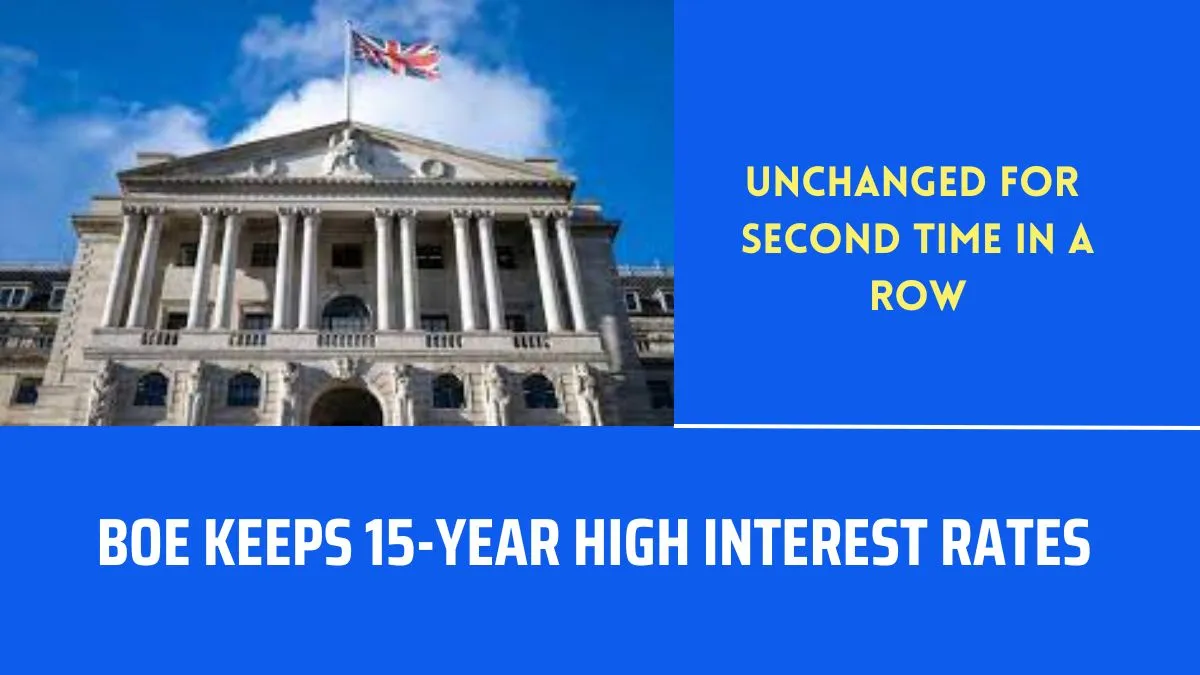The Bank of England has chosen to keep interest rates at their highest level in 15 years as they continue to fight against rising inflation, despite concerns that a recession may be imminent for the British economy.
Monetary Policy Decision of Bank of England
The bank has decided to maintain the current interest rate of 5.25%. After 14 consecutive rate increases, this is the second meeting in a row that they have done nothing.
The central bank wants to make sure that borrowing money stays relatively expensive. They’ve also highlighted their strong commitment to this. Additionally, they cautioned that if inflation keeps putting pressure on prices, they might need to make borrowing even more expensive in the future.
By a vote of 6-3, the Monetary Policy Committee (MPC) decided to maintain the current bank rate. The Bank of England’s outlook suggests they’ll keep things like this for a while, with a strategy to control the money supply. Governor Andrew Bailey made it clear that they’re not thinking about lowering rates but might raise them again.
Global Context
This choice is in line with what the European Central Bank and the U.S. Federal Reserve have been doing lately. Central banks all around the world are dealing with a big jump in prices. Policymakers are also keeping a close watch on the conflict in the Middle East. Because it could make oil and gas prices go up, which would add to the problem of rising inflation.
Also read: Federal Reserve Keeps Interest Rates Steady Despite Strong Data
Inflation Concerns
Even though inflation has come down a bit from its highest point, the Bank of England is committed to preventing a situation where prices keep rising too quickly. Inflation is still higher than the bank aims for, which is 2%. The bank’s view of the economy suggests that it won’t be growing much shortly, and things might stay quite still for some years.
Investors are waiting for the bank to stop raising interest rates. They’re also expecting that the bank might lower rates in the future to prevent a recession. The bank’s predictions match what the market expects—that inflation will reach the 2% goal in two years. However, the central bank is keeping a close eye on strong wage growth, which could keep inflation going.
The Bank of England has some doubts about the data concerning the job market. They suspect that the number of new jobs created may not be as high as initially estimated.
Additionally, they anticipate a deceleration in the rate at which wages are increasing. Furthermore, their forecast suggests that there may be an increase in unemployment over the next two years.
Notably, the Bank of England’s expectation of 4.6% inflation in late 2023 lines up with Prime Minister Rishi Sunak’s promise to control rising prices, especially as a national election is expected in 2024.




